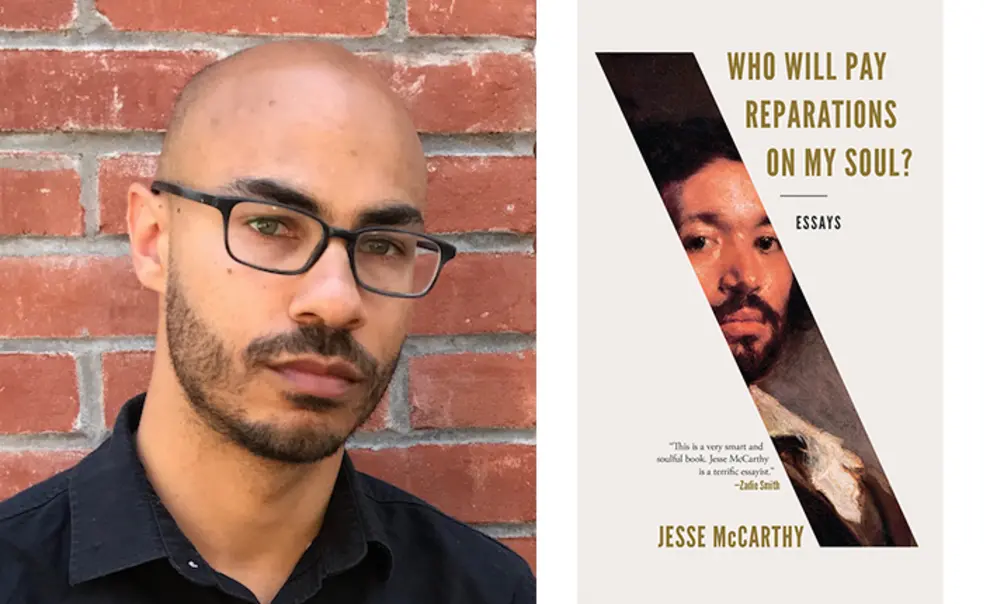Jesse McCarthy *18 Shines Spotlight on Little-Known African American Authors
McCarthy won the Whiting Award for his ‘dazzling’ first book
Jesse McCarthy *18, an assistant professor at Harvard, was one of 10 winners of this year’s Whiting Award, a prestigious prize that gives emerging writers $50,000 to “take bold new risks in their work,” according to the Whiting Foundation.
Recognized in the nonfiction category, McCarthy was lauded for his first book, Who Will Pay Reparations on My Soul?, a collection of essays whose “observations on the intersections of history, pop culture, and Black personhood roll over us like an incoming storm of gorgeous sentences,” the foundation said. “These are clutch-your-throat essays, revelatory, resonant, and uncompromising. Dazzling is the only word.” Selected as a Book of the Year by Time and Kirkus Reviews — as well as a National Book Critics Circle finalist — the volume’s essays examine topics such as music, literature, and the visual arts through the lens of race, culture, aesthetics, and politics.
“My hope is to give a sense of inspiration and motivation to younger audiences and explore the connections among the worlds of ideas and pop culture and, quote unquote, high culture,” he says.
McCarthy, who teaches in Harvard’s departments of English and African and African American studies, pulled off the unusual feat of having two books published in the same year: His debut novel, The Fugitivities, also came out in 2021. The New York Times said the book’s prose, “agile as a pianist in full flow, dances across the page.”
The novel is semi-autobiographical. Like the protagonist, McCarthy spent part of his childhood in France — he moved there at age 8 without knowing a word of French — and once worked as a high school teacher in Brooklyn. “Growing up in France as an African American was an unusual experience,” McCarthy says. “It was a moment when France in many ways was grappling with its own relationship to race.”
In several of his upcoming scholarly projects, McCarthy strives to bring attention to lesser-known African American authors. The first is the poetry anthology Minor Notes, Volume 1, to be published in April by Penguin Classics. It features African American poets whose work has been neglected or remained marginal in spite of previous efforts by academics to draw attention to them. McCarthy is co-editor of the volume with Joshua Bennett *16, a friend from graduate school who is now a professor at Dartmouth.
The second project is a forthcoming book with the working title The Blue Period: Black Writing in the Early Cold War. Developed from McCarthy’s dissertation, it puts a spotlight on the work of several underappreciated authors. One is Vincent O. Carter, whose memoir The Bern Book: A Record of a Voyage of the Mind was recently reissued by Dalkey Archive Press for the first time since 1973, with an introduction by McCarthy.
“The depth, richness, and variety of the African American literary tradition is sometimes not as appreciated or as widely circulated as it should be,” McCarthy says. “I’m interested in playing a role in sharing and invigorating the conversation about this work.”












No responses yet